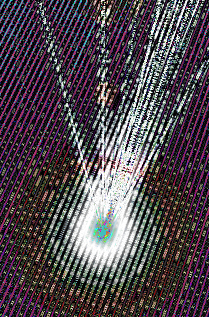Quantum workers needed
 A scarcity of talent could be hampering Australia’s quantum industry.
A scarcity of talent could be hampering Australia’s quantum industry.
Quantum technologies represent a massive opportunity, but strong global competition and a scarcity of talent could slow growth in the sector in Australia, a major industry review has found.
Australia’s nascent quantum sector sees the technology as a massive economic opportunity with the potential to be game-changing for a variety of industries.
However, industry players say Australia will struggle to truly commercialise quantum applications onshore.
The National Quantum Industry and Workforce Development Review, published today by Sydney Quantum Academy, is based on a year-long survey of Australia’s quantum industry.
Relying on in-depth interviews with key organisations as well as qualitative and quantitative research, it represents the first overviews of an emerging local sector projected to be worth $2.2 billion and employ almost 9,000 Australians by 2030.
“This gives us some useful insights into the national industry and its expectations,” says Prof Peter Turner, CEO of the Sydney Quantum Academy (SQA), a partnership between four Sydney universities and backed by the NSW Government.
“It confirms some of our internal thinking, particularly on the education front.
“It’s clear that the industry – both developers of quantum technologies and likely users – understand its potential, and will have a growing and urgent need for a skilled workforce for years to come,” he added.
The review surveyed both start-ups developing quantum technologies as well as potential users across various industries, including aerospace, banking and insurance, chemicals and energy, health and life sciences, logistics and information technology.
It also sought input from industry associations, local offshoots of international companies, as well as Federal and State Government instrumentalities.
Respondents considered Australia to have strong levels of research expertise and nucleus of respected global thought leaders, as well as universities with high quality talent and accomplished education programs, particularly in PhD and Master’s programs.
Quantum computing was identified as the main quantum technology under development, and the one of most interest to potential users.
This was led by computing hardware and high-level software (eg. algorithms and applications), followed by low-level software (control, error correction and fault tolerance).
Almost one-third of local quantum companies said they also supply expertise in quantum communications, cryptography or sensing; while quantum simulation, imaging and metrology was at lower levels.
A wide range of industries said they are exploring quantum technologies.
Almost half of Australian quantum technology developers said they supply to clients in the innovation sector, followed by information technology; then banking, finance and insurance; with quantum technology for defence in the top five.
Potential users cited quantum computing as the type of quantum technology they are most likely to use: 78 per cent said they will have a use case for quantum technologies in their business in the next five years, and that it would likely occupy two-thirds of their organisation’s focus on average.
Only 22 per cent of potential users said no quantum technology is likely to have a use case in their organisation in the next five years.
While both technology developers and potential users see a strong need for ‘quantum specialists’ (scientists with PhDs in physics, chemistry, mathematics or computer science), a growing need was identified for ‘strategists’: business executives with a sophisticated understanding of quantum technologies to help develop business priorities and opportunities.
Another growing need was for ‘technology translators’: graduates with a background in science, engineering or software development who can take quantum technologies and turn them into products or solutions.







 Print
Print